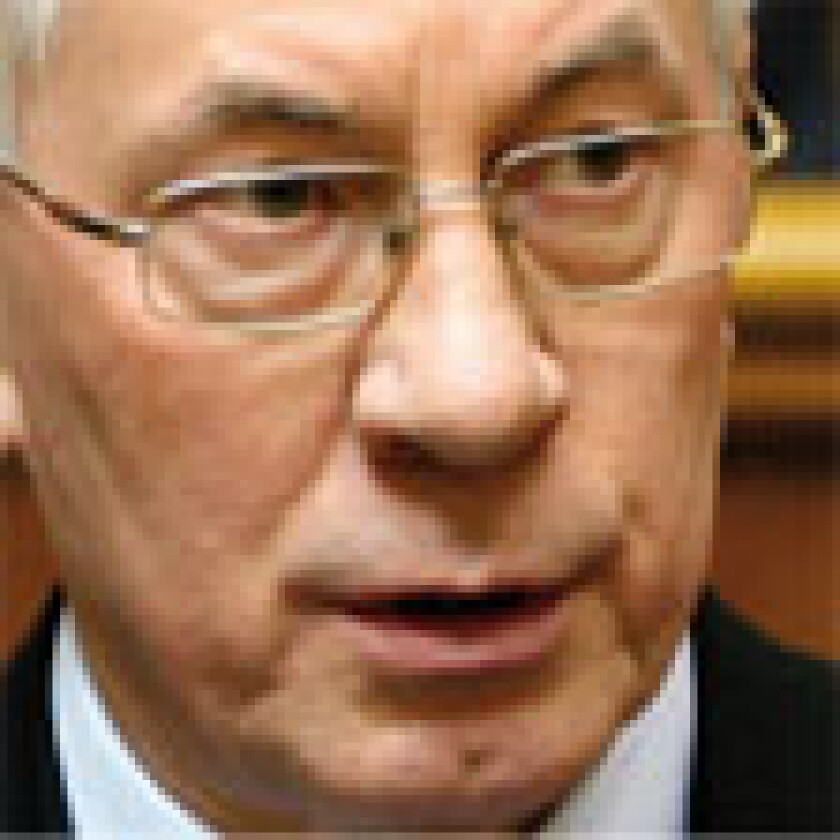The Ukrainian government has put plans to slash public spending and drive up tax collection rates at the centre of its fiscal strategy, prime minister Mykola Azarov said this week.
He told Emerging Markets that the budget adopted last month had “cut to the bone all non-productive state spending”.
He said it would cut spending on the “upkeep of the state apparatus” by 20%, which would bring costs down roughly to the 2005 level. At the same time it plan to raise revenues by 18.7% compared with 2009, while reducing the fiscal burden on the economy by roughly 2% – down to 30.9% of GDP.
“This is a tough, anti-crisis budget, which we in practice have only half a year to implement”, admitted Azarov, who was appointed premier in March after Viktor Yanukovich’s victory in the presidential election. But he said the figures were “realistic” and met the requirements of IMF loan programmes.
Ukraine’s GDP shrank 15% in 2009 back to where it was in 2005. Industrial production returned to where it was in 2003 – due, he claimed, to the “unprofessional policy of the previous government”.
The budget is based on cautious assumptions about economic recovery this year: GDP growth of 3.7%, inflation of 12.2% and a stable exchange rate of 8 hryvna to the US dollar.
Azarov said that from 2011 a new tax code would stimulate the economy by reducing tax rates, simplifying procedures, liberalise economic regulation and cut down tax discounts and exemptions.
Azarov said the government was “counting on receiving the first tranche under a new programme of cooperation [with the IMF] in June”.
The IMF now has a “predictable, responsible partner” to deal with, he argued. “Ukraine is in a situation unique in the last 15 years: there is a unity of political will and action between the president, the parliamentary coalition and the government.”
The new IMF programme would be directed not towards recovery from the crisis – “the new government will deal with that itself” – but provide medium-term resources to underpin structural reforms, “of the tax system, the budget, the housing sector – including tariff reform – of energy, the legal system, and so on”.
Azarov added: “Once we had agreed with Russia on reducing gas prices, no-one should have had any doubt that the government would implement a budget under which minimum pensions and wages would be raised, and could move tariffs, gradually and on an optimum trajectory, to economically-justified levels; and that Naftogaz Ukrainy would break even.”
Azarov vigorously defended the deal with Russia under which gas imports have been discounted in exchange for an extension of the lease on the Black Sea naval base. This had brought gas prices down from “unacceptable” levels, and had pushed firms back to profitability
